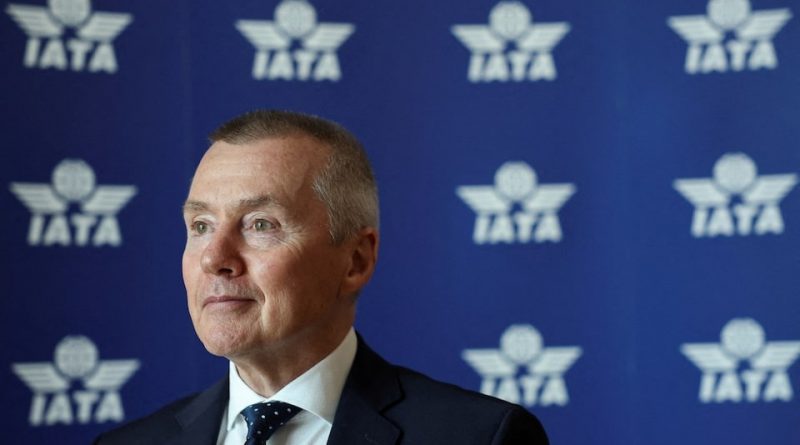IATA Calls for Fair Play as Green Jet Fuel Push Takes Off Across Europe
Global airlines champion sustainability but urge fair pricing, as IATA highlights the need for cooperation — not competition — in fueling aviation’s cleaner future.
The International Air Transport Association (IATA) is calling for balanced, transparent pricing in the aviation industry’s green transition, saying airlines are eager to embrace sustainability — but must not be penalized for doing so.
As Europe’s new green jet fuel mandates come into effect, IATA is encouraging regulators, energy suppliers, and airlines to work hand in hand to make cleaner skies achievable for all.
The European Union’s sustainable aviation fuel (SAF) mandate, which took effect this year, requires airlines to blend at least 2% of their fuel with greener alternatives, with that target set to rise to 6% by 2030.
The goal is to reduce carbon emissions from the aviation sector — one of the hardest industries to decarbonize — by gradually replacing fossil-based jet fuel with sustainable sources such as biofuels or synthetic alternatives.
However, as the aviation industry works to meet these ambitious environmental targets, IATA has raised concerns over rising costs and market practices that could threaten the long-term affordability and scalability of SAF.
According to IATA Director General Willie Walsh, some fuel suppliers have taken advantage of the new mandates to increase prices through additional “compliance surcharges,” almost doubling the cost compared to standard market rates. “We fully support the environmental goals behind these policies,” Walsh emphasized in an interview with Reuters, “but fair pricing is essential. We cannot allow sustainability to become an excuse for overcharging.”
While Walsh did not single out any specific suppliers or airlines affected, he urged European regulators to examine the issue and ensure that cost transparency and competitive fairness remain central to the green transition. “Our industry is ready to invest and innovate,” he said. “But we need partnership, not penalties, to get there.”
Airlines Leading the Green Revolution
The aviation industry has been one of the most proactive in embracing global sustainability goals. Major airlines have announced long-term commitments to achieve net-zero emissions by 2050, with SAF seen as a cornerstone of that mission.
Compared to traditional jet fuel, SAF can reduce lifecycle emissions by up to 80%, offering a powerful pathway toward cleaner air travel.
Still, the challenge lies in scaling production. At present, SAF costs roughly three to five times more than regular jet fuel, mainly due to limited supply and high production costs. Energy companies argue that they need greater investment and stable demand to expand SAF output, while airlines face mounting financial pressure as costs rise.
“Everyone agrees on the importance of sustainable fuel,” said an aviation analyst based in Paris. “The real question is how to make it affordable, accessible, and fairly distributed across the industry.”
The Need for Shared Responsibility
Walsh’s comments come at a time when cooperation between governments, fuel suppliers, and airlines has never been more crucial. IATA has urged policymakers to incentivize innovation and support large-scale SAF production through subsidies, tax relief, and infrastructure investment — much like the renewable energy sector benefited from during its early growth years.
The association’s message is clear: sustainability should be a collective journey, not a competitive battlefield. “We’re not against mandates,” Walsh noted, “but they should drive progress, not profit-taking at the expense of airlines and passengers.”
Several oil majors, including ExxonMobil, TotalEnergies, and Shell, have already announced SAF expansion projects, though some have recently scaled back plans due to fluctuating demand and high input costs. Industry experts believe stronger public-private partnerships could bridge this gap, ensuring consistent fuel supply and fair pricing mechanisms.
Aviation’s Vision for 2025 and Beyond
Despite cost challenges, the global aviation sector remains optimistic. Airlines continue to invest in cleaner technologies — from next-generation aircraft to hydrogen-based propulsion research — alongside SAF development.
IATA’s latest report also highlights that the industry is expected to spend nearly $11 billion in 2025 on addressing congestion and supply chain challenges, reflecting its determination to maintain operational stability while advancing sustainability goals.
As Walsh aptly put it, “The skies belong to all of us — and so does the responsibility to protect them. We must build a system that rewards commitment, innovation, and environmental progress, not exploitation.”
With global travel rebounding and climate awareness at an all-time high, the coming decade could define the future of flight. For IATA and its member airlines, the mission remains clear: make aviation greener, fairer, and more resilient — together.


